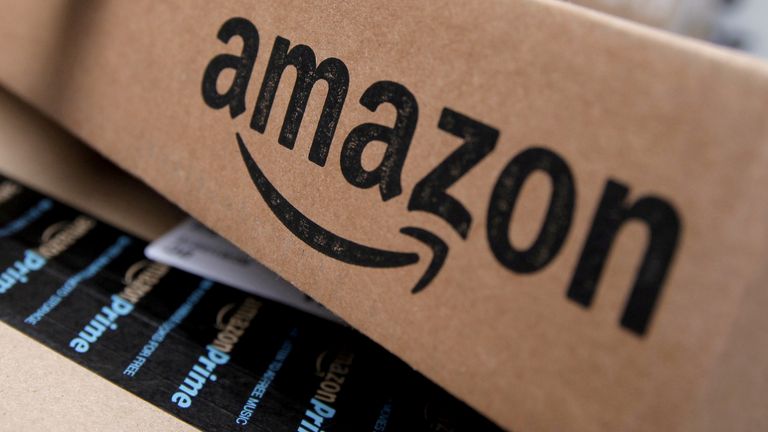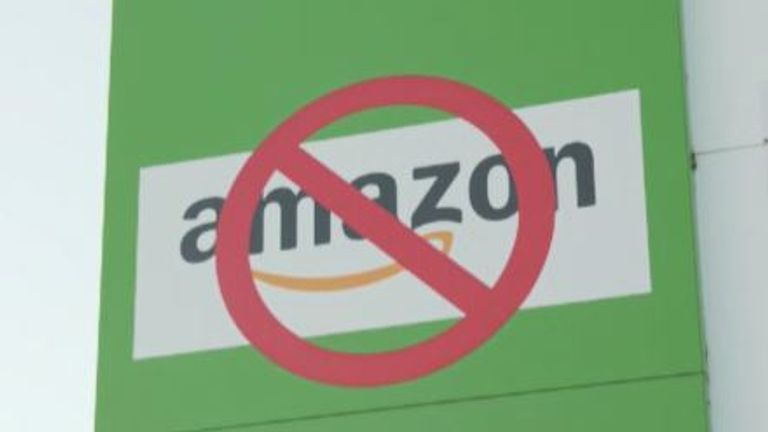Darren Westwood knows how to stand up for himself.
As a child, he was bullied on the playground and beaten in his local downtown. Now he doesn’t take anyone’s stick, no matter how big or powerful they seem, even if they happen to be one of the biggest corporations in the world.
Mr Westwood thinks his employer, Amazon, is a bully.
Growing tired of the pay and working conditions at the company’s warehouse in Coventry – where workers stood all day picking goods for delivery to other warehouses – he had been rallying colleagues to support the strike.
After some initial reluctance, he gradually won them over, with nearly 300 workers preparing to strike today – marking the web giant’s first formal strike on British soil.
The 57-year-old said: “I don’t get bogged down by things. I’ve grown up my whole life and I’m at that stage where I’m not intimidated or worried.”
“During the pandemic, people are thanking us, and we appreciate that, but Amazon is still making money, and we feel like we’re being left behind.”
“The money is out there. I know people say it’s the politics of jealousy, but we don’t want his [Jeff Bezos’] yacht or his rocket. We just want to be able to pay our way. That’s what we’re asking for. “
Unions have traditionally struggled to penetrate Amazon, but sentiment among employees at the company shifted in August after it offered workers what many considered a paltry raise. The online giant has increased hourly wages by 50p to £10.50 an hour.
Click to Subscribe to the Ian King Business Podcast
After hearing the news, the workers staged an unofficial strike. They expect more, especially given that the company has made huge profits in recent years and inflation is rising at its fastest pace in 40 years.
The GMB union seized the opportunity to help arrange the strike, with workers voting for formal action before Christmas.
However, it’s not just about money. Amazon has long been criticized for adopting strict productivity targets that require workers to sort a certain number of items per hour.
Failure to do so may result in “adaptation”, a kind of caveat. Employees are given two 30-minute breaks per day, only one of which is paid.
“When you think you have to queue to clock in, then queue through metal detectors and security, then queue to get your food, that time does go away very, very quickly,” Mr Westwood said. and got used to it.”
The loss of as many as 300 of Coventry’s 1,400 staff is unlikely to cause any major operational problems for Amazon, but management will be watching developments closely. Globally, its workforce is already in turmoil. In the US, workers at a warehouse in New York recently voted to form the company’s first-ever union.
The GMB union has called on Amazon to pay its UK workers £15 an hour to bring their wages in line with those of US workers, who earn $18 an hour. However, Mr Westwood conceded it would likely take far less time to resolve the dispute.
“an extra £2 an hour is acceptable”
“If they just added £2, I’d be happy. I think £2 an hour or £2.50 an hour would be acceptable. I think that’s when everyone would stop and people would be happy,” he said.
The company told Sky News it pays competitive local wages, which have risen by 29 per cent since 2018.
A spokesperson added: “We appreciate the excellent work our teams do throughout the year and we are proud to offer competitive salaries, starting from as low as £10.50 to £11.45 an hour, depending on location.
“Employees also receive thousands of dollars worth of comprehensive benefits – including private health insurance, life insurance, meal allowances and employee discounts, to name a few.”
Workers, however, accused it of cutting other benefits in the process. Crucially, the 5% raise it gave workers was equivalent to a real pay cut, as inflation, which peaked above 11% last year, more than tripled.
Mr Westwood pointed out that the company had raised the cost of services to reflect higher inflation, while neglecting to share the spoils fairly with employees.
Something similar is playing out across the economy, especially in the public sector, where labor relations are fraying under the pressure of rampant inflation. Nurses, ambulance drivers, railroad workers, teachers and postal workers all voted to put down their tools and march.
“Some nights I can’t sleep”
Like some of Amazon’s employees, many of them have been repeatedly reminded of their worth during the pandemic, going out to work while others stayed home.
“These are good people,” Mr Westwood said. “I know some people think we don’t have the skills, it’s minimum wage for ‘minimum jobs.’ But you need us during a pandemic. You clap for us, paint rainbows in the streets. We’re the same people.”
“10 hours a day, stand on your feet. I walk 18,000 steps and it takes a toll on people. My shoulder hurts. Some days it really hurts. Some nights I can’t sleep, it just keeps me awake It’s the repetitive stress of doing the same job over and over again.”
While Westwood hopes the two sides can reach an agreement, he believes the main takeaway will be increased unionization within Amazon’s workforce to ensure employees continue to stand their ground.
He acknowledges that there are benefits to working for Amazon, and that many people enjoy their time there, but believes the company still has a long way to go.
“Colleagues are struggling to pay their bills,” he said. “But we work for one of the richest people in the world, one of the richest companies in the world, one of the richest countries in the world … it’s not fair.”


